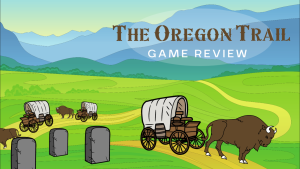No ‘bad’ majors
January 17, 2018
If you’re a liberal arts major, you’ve more than likely been asked you what you plan on majoring in during college. You might say, “I’m an art major,” “I’m a theatre major” or “I’m a journalism major.”
And that’s when the mood shifts.
You notice the exact moment when their mood turns from curiosity to slight confusion or even disappointment. They say, “Well, what are you going to do with that?”
These types of moments are when you can begin to doubt yourself.
When someone devotes themselves to something as expensive and time-consuming as college, they want to know when they graduate they’ll have some idea of where they’re going.
There’s this idea that there are “good” majors and “bad” majors.
If someone wants to graduate with the hope of being successful financially and career-wise, then they need to have graduated with a “good” major. This can lead to many to look down on students with what some would consider “bad” majors.
Many majors in liberal arts can be viewed in this way. Especially areas such as theatre, art, gender and cultural studies can be seen as “inferior” to more science-based and technical majors.
That’s not to say that science, math and engineering are unimportant, but it goes to show how limited people can be with their perception of majors they assume to be easy, useless or unimportant.
The truth is, there is really no easy major.
Every major has its own unique challenges that will vary from student to student. People tend to underestimate just how difficult and time-consuming a major in liberal arts can be. And although most can agree that science and medicine are important to our greater society, it can be argued that arts also play a very important role in our day-to-day lives.
Probably the biggest worry people encounter when they major in liberal arts is the fear of not being able to find work. There’s no guarantee of finding a job right away post-graduation. Unfortunately, many majors in liberal arts suffer from low job prospects and high competition.
Despite all this, I’d like to point out that no degree can help someone be successful in their career if they don’t have the skill or passion for whatever they decided to study in school.
Even if someone chooses a major with high job rates now, there’s no guarantee it will always be that way in the future.
Being aware of job prospects is one thing, but if someone has no passion or interest in what they’re studying, how can they expect to live enriching and engaging lives with the career that they’re studying?
This is why I couldn’t imagine being anything but a liberal arts major.
I chose my career because I wanted to do something that was engaging to me. I know that it’s easy to feel uncertain about the decisions we make in college. But it’s important to know you’re doing so with the confidence that your chosen career is fulfilling to your personal needs. And there’s no telling how those needs can shift and change as we grow as people.
That’s why I can proudly say, “I’m a liberal arts major.”





